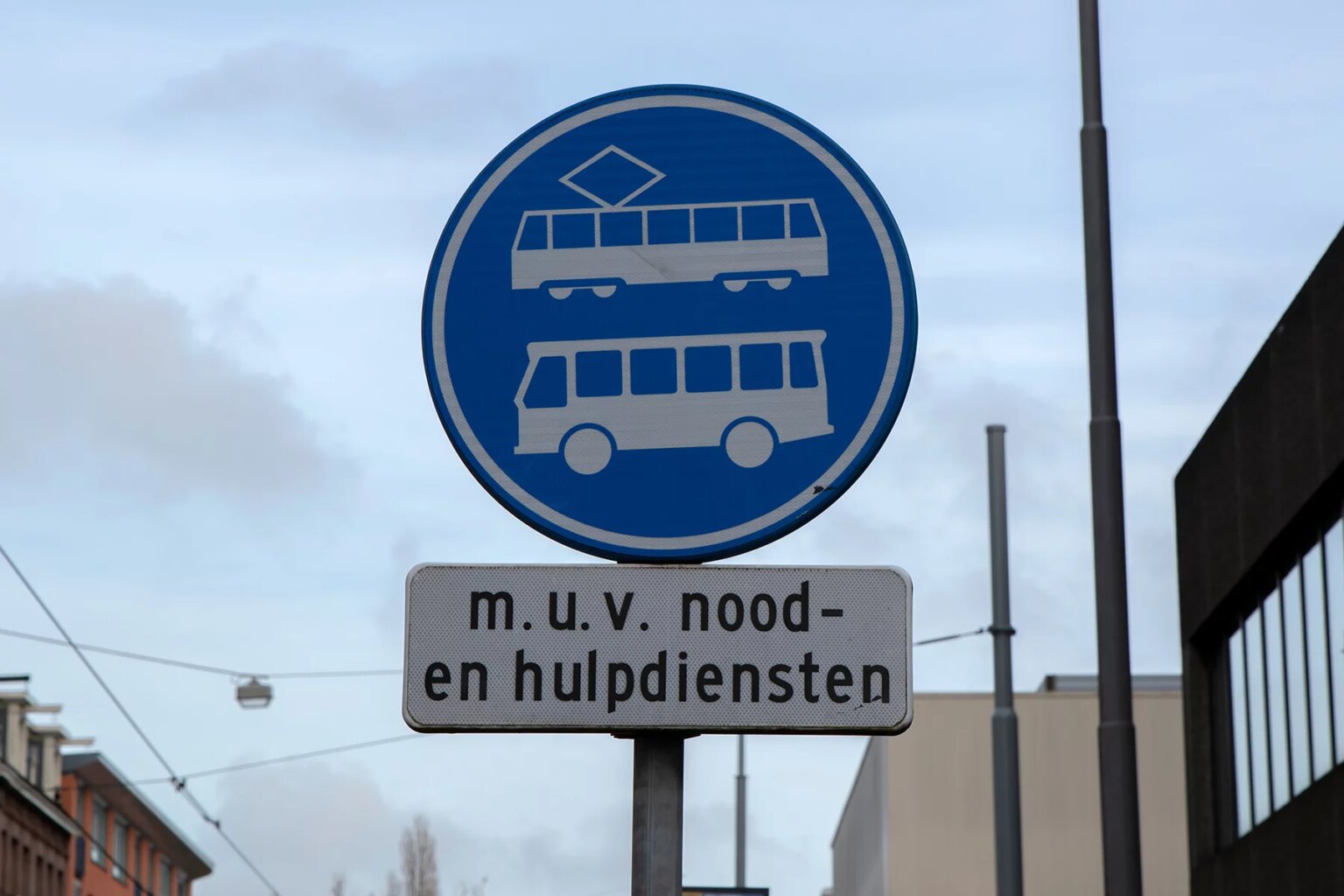Imagine you’ve been putting in the hours learning Dutch, and it’s going well. Then, a letter arrives. In it is a list of letters: WOZ, AFV, and OZB, with large numbers beside them. Moreover, it appears you have to send someone some money.
Besides the shock from the amount at the bottom of the bill, you might find yourself baffled by the capital letters. Unfortunately, abbreviations can be a source of confusion in Dutch, but help is at hand.
Read on to find out:
Babbel
Babbel is an app for language learning. Their courses are designed by experts, and can fit into your lifestyle. Whether you've got a whole afternoon to spare, or just five minutes, pick up Babbel and get learning.
Why does Dutch use so many abbreviations?
The Dutch language contains some particularly long words. Indeed, speakers of some languages can find these somewhat intimidating. But, thankfully, the Dutch provide plenty of abbreviations (or afkortingen) to make things more efficient – rather than onroerendezaakbelasting, you have OZB. Instead of afvalstoffenheffing, you can talk about AFV.

It’s not necessarily true that Dutch has more abbreviations than other languages, but you’ll almost certainly come across them in everyday life. You’ll also notice that most abbreviations (in Dutch) are written in small letters rather than capitals. However, abbreviations of names and borrowings from English are usually capitalized.
Abbreviations relating to housing
When you arrive in the Netherlands, you’ll almost certainly receive a lot of letters containing a broad spectrum of acronyms and initialisms. The first and most essential one you’ll encounter is the BSN (burgerservicenummer), the Dutch national identification number. Once you have a BSN, you can do all the important things in life: from opening a bank account to moving house.
When it comes to housing, whether you’re a homeowner or renting, you’ll need to pay taxes on your residence. Therefore, make sure you’re aware of these abbreviations:
- AFV (afvalstoffenheffing) – charge for collecting your garbage
- RIOE (rioolrecht) – connection to the sewage system (for house owners only)
- OZB (onroerendezaakbelasting) – housing tax on ‘immovable’ objects
- WOZ (waardering onroerende zaken) – house value used to determine how much tax you pay
Abbreviations for work and business
In the bustling Dutch business world, you’ll certainly hear lots of jargon (or vakjargon), shortened words, and perhaps even the odd scattered English word (onboarding, anyone?). With this in mind, it’s a good idea to learn how to talk business. So, a few useful abbreviations you can use include:
- BTW (belasting toegevoegde waarde) – sales tax, VAT
- dhr. (de heer) – Sir
- dir. (directeur) – director (used for any gender)
- KvK (kamer van koophandel) – Chamber of Commerce
- M/V (man/vrouw) – man/woman (in job ads)
- m.vr.gr. (met vriendelijke groeten)– with kind regards
- Mw (mevrouw) – Madam
- Preso (presentatie) – presentation
- Prio (prioriteit) – priority
- Stavaza (stand van zaken) – state of affairs
- Vrijmibo (vrijdagmiddagborrel) – a Friday afternoon drink with your colleagues
Other abbreviations include those from English, such as EOB for ‘end of business day.’ You might even come across the slightly less polite CWOT – ‘complete waste of time.’ If you use them correctly, you’ll fit into your new Dutch workplace in no time.
Dutch abbreviations for education
The Dutch education system is home to an overwhelming number of abbreviations. You’ll find that every stage of education has its own initialism, and it can be hard to keep track of them. So here is a quick rundown of useful abbreviations you’ll hear if you’ve got kids in school:
- OCW (Ministerie van Onderwiijs, Cultuur en Wetenschap) – Dutch Ministry of Education
- TSO (tussenschoolse opvang) – when children stay at school for lunch
- BSO (buitenschoolse opvang) – after-school daycare
- vvto (vreemdetalenonderwijs) – early foreign language education
- LVS (leerlingvolgsysteem) – a system used to monitor pupils in Dutch primary school
- vmbo (voorbereidend middelbaar beroepsonderwijs) – preparatory secondary vocational education, followed by mbo (middelbaar beroepsonderwijs)
- havo (hoger algemeen voortgezet onderwijs) – general secondary education
- vwo (voorbereidend wetenschappelijk onderwijs) – pre-university education
- HBO (Hoger Beroeps Onderwijs) – higher professional education
- WO (Wetenschappelijk Onderwijs) – research-oriented higher education at an university

If you have a child with special educational needs (SEN), you’ll have other abbreviations to take into account. For example sbo (speciaal basisonderwijs), so (speciaal onderwijs), and vso (voortgezet speciaal onderwijs).
Abbreviations used in healthcare
The Dutch healthcare system is considered among the best in Europe. So if you need to access healthcare, it’s a good idea to familiarize yourself with some typical abbreviations. They include the following:
- EHBO (eerste hulp bij ongevallen/ongelukken) – first-aid
- ggz (geestelijke gezondheidszorg) – mental healthcare
- Zvw (zorgverzekeringswet) – basic health insurance
- Wlz (wet langdurige zorg) – long-term nursing and care
Let op! (Take note) – Dutch uses the international abbreviation ICE (in case of emergency) for emergency contacts. However, you might see this phrase translated as ‘in geval van nood.’
Other useful Dutch abbreviations
As well as the above, you’ll come across many other Dutch abbreviations in your everyday life. So don’t forget to use these when talking to your new Dutch friends:
- aso (asociaal): anti-social
- aub (alstublieft): please
- ca. (circa): around, about
- d.m.v. (door middle van): by means of
- d.w.z. (dat wil zeggen): i.e.
- e.a. (en anderen): and others
- enz. (enzovoorts): etc.
- excl. (exclusief): exclusive of
- geb. (geboren): born
- idd (inderdaad): exactly (slang)
- i.p.v. (in plaats van): instead
- i.v.m. (in verband met): in connection with
- m.b.t. (met betrekking tot): concerning
- m.i.v. (met ingang van): starting from
- m.u.v. (met uitzondering van): with the exception of
- mss (misschien): maybe (slang)
- o.a. (onder andere): amongst other things
- ong. (ongeveer) approximately
- oorspr. (oorspronkelijk) originally
- overl. (overleden): deceased
- OV (openbaar vervoer): public transport
- svp (si’l vous plait – French): please
- t.a.v. (ter attentie van/ter aanzien van): to the attention of/with regard to
- t.e.a.b. (tegen elk aannemelijk bod): reasonable offers accepted
- t.k.a. (te koop aangeboden): for sale
- t/m (tot en met): up to and including
- t.n.v. (ten name van): in the name of
- t.w.v. (ter waarde van): worth
- v.a. (vanaf): from
- z.o.z. (zie ommezijde): turn over









